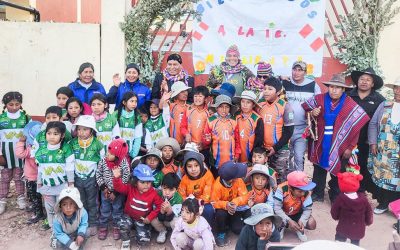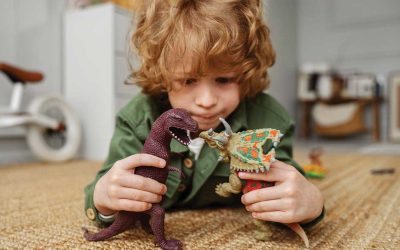Is your child excessively afraid of certain situations or objects, or avoid certain places or doing certain things because of their fear? Maybe your child has a phobia, and Griffith University has a free program to help!
A research team at Griffith University is offering free assessment and treatment for children ages three to five years with a specific phobia. The program, Pre-schoolers Overcoming Phobias (POP!) is part of a nationally funded treatment study of young children with specific phobias. The study is being run by a team of international experts in child anxiety, led by Associate Professor Lara Farrell.
Sadly, specific phobias are among the most common mental health disorders affecting children, and affect approximately 10 per cent of children. They are among the earliest disorders to onset, occurring in children as young as three years, and there is compelling evidence suggesting these phobias in childhood are a powerful marker of risk for the development of mental health disorders later in life.
A recent ten-year study concluded that about half of all serious adult mental health problems (including panic disorder, generalised anxiety disorder, OCD, PTSD and depression) could be prevented if specific phobias were effectively treated earlier in life.
Currently there are no evidence-based interventions for treatment of specific phobias in pre-school aged children. Concerned parents who take their child to see community GPs for specific phobias are often told that these fears are normal and that the child will outgrow them. Unfortunately, although symptoms can recede for some children, we know from the scientific literature that this is often not the case.
What are Specific Phobias?
Fear about certain situations, animals or objects is not uncommon. Fear is a rational response to situations that can pose a threat to our safety, and many people feel anxious when faced with things such as a spider, a snake, or travelling by plane. However, a specific phobia is a recurring irrational reaction or exaggerated response to a specific object or situation.
In the DSM-5, the key diagnostic manual used by mental health professionals, specific phobias are described as ‘marked fear or anxiety about a specific object or situation (e.g., animals, flying, heights)’. In young children, specific phobias can cause extreme emotional and physical reactions, and can be debilitating, negatively impact the child’s quality of life and family functioning. For example, a young child with a specific phobia, when faced with their phobic object/situation may get extremely upset, cry and become very clingy, or they may scream, have a temper tantrum and try to run away from the source of the phobia.
What’s involved in the POP! program?
The Pre-Schoolers Overcoming Phobias (POP!) program is currently examining the effectiveness of brief cognitive-behavioural treatment (CBT) for specific phobias in children three to five years of age. The study is a randomised controlled trial (RCT) aiming to learn more about the course of childhood fears in young children, and involves testing a novel, brief intervention for childhood phobias, which has proven effective in older children and with adults.
Any specific phobia presenting in children aged three to five years old can be explored in the program (excluding blood/injection/injury phobias).
POP! is free and involves:
- a full diagnostic assessment
- randomisation to one of three conditions
- a series of follow-up phone calls spanning 24 months.
As it is yet unknown if the active exposure therapy treatment is more affective than a “wait and monitor” approach, or parent and child psychoeducation, all three of these conditions will be assessed. Children assigned to wait-list or psychoeducation will be offered the higher intensity exposure treatment if, after the condition completion timepoint, their symptoms have not remitted. All assessments and treatments are free of charge.
The POP! program is run from Griffith University’s Gold Coast campus in Southport and will be actively recruiting participants until 2022. Interested parents whose child has a phobia can call or email the POP! team to register their interest and leave contact details, and a member of the POP! team will contact you.
If you are concerned your child has a phobia, for further information about the program, call the POP! Team on (07) 5678 8317 or email .
You can also find out more from their Website or Facebook page.
You may also like…
Parenting a highly sensitive child




